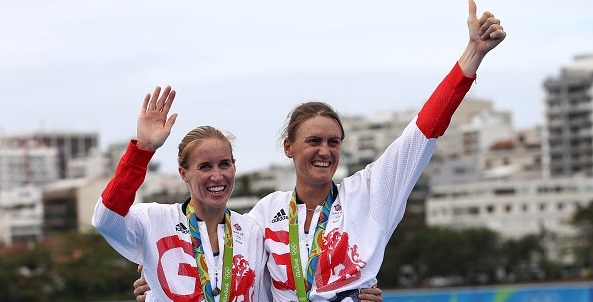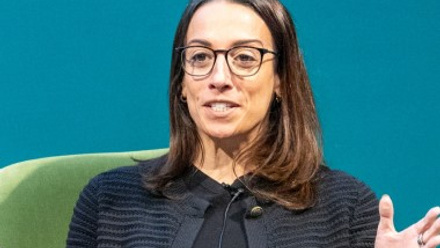What business can learn from GB’s Olympic and Paralympic success: 10 top tips

Today Britain’s Olympic and Paralympic athletes are synonymous with high performance – even achieving the hugely ambitious goal of becoming the first host nation to go on to win more medals at the next Games. But it hasn’t always been that way. Only 20 years ago – in the 1996 Games in Atlanta – Britain won just 15 medals and came 36th in the medals table.
How has this transformation happened? And what can others learn from it?
UK Sport is the country’s high-performance sports agency and invests in Olympic and Paralympic Sport. It was created in 1997 – out of the Atlanta experience – and has been at the heart of the turnaround. Here are some lessons for business inspired by a presentation by UK Sport’s chief executive, Liz Nicholl, CBE, at the London headquarters of partner organisation, Bupa:
1 Invest in people
Every company knows that it relies on good people but in sport that’s even more apparent.
While public money for grassroots sport via Sport England is channelled largely towards buildings and facilities, UK Sport makes sure the funding it receives from the National Lottery and Government is spent predominantly on athletes, coaches and support staff, and the results are clear....
2 Set standards and review progress frequently
Large companies know they have to get their headquarters and different departments working in sync. To do so it’s important to be clear about the standards that are expected and to keep an eye on whether these are being met.
UK Sport does this with each of the individual sports – from cycling to sailing and boxing to archery. It uses a team of data analysts to help set standards and has a regular dialogue with the sports on whether they are being met.
“We ask each sport to review the performance of their programmes regularly across the year and report back on how their athletes are progressing in terms of performance, development, wellbeing, health and commitment. Then our independent panel gives feedback,” says Nicholl. “That’s quite a lot of reporting, but it’s helped the sports understand what they should be doing.”
3 Work together
Every manager wants to hear about problems when they are happening – before it’s too late. So it’s important to make sure the routes for communicating difficult news are open and there is a support network in place.
Nicholl says they realised that sports weren’t telling them if they were in trouble so they developed a scheme to say that if you have a problem, you will be matched with an expert from another sport who can help. “We wanted them to know that they weren’t failing, we are in it together, and to get sports to work together and share their expertise,” she adds.
One example is archery. The archers were worried about how the wind would affect their arrows at the Lord’s Cricket Ground venue for the 2012 Games. So UK Sport put them in touch with the sailing team – who were experts in wind conditions – and they got Lord’s to put in systems to capture data about wind flow that could give the archers that information.
4 Be clear on your vision
The goals of your organisation need to be clear not just on a corporate level but also on an individual level.
UK Sport uses the “VMOST” framework to bring all the layers of its organisation into alignment on its vision, mission, objectives, strategy and tactics.
Its vision is ‘A nation inspired by Olympic and Paralympic success’, while its mission is ‘Driving and showcasing British medal success on the world stage’ – things that can be felt at an organisational, directorate, department, team and individual level.
Nicholl was particularly proud when a 2012-13 Ipsos MORI poll asked the British public which aspects of British society made them most proud to be British and Team GB came third, behind the NHS and the Armed Forces.
5 Work with partners
No organisation can have enough resources to do everything for itself and there will always be people you can partner with to bring extra expertise and opportunities to your work.
As a recipient of money from the National Lottery and Government, UK Sport depends on partners, including Bupa, which provides athletes with access to private medical cover from the time they are selected. “This hugely reduces the time they miss from training and helps make sure they get to the start line fit and healthy,” says Nicholl.
6 Look everywhere for the best talent
Too often businesses have a simple chain of promotion based on longevity within the company rather than looking beyond the company for the best talent.
And sports are the same – they are used to just getting the people who take up the sport, join a club and work their way up through the ranks.
UK Sport opened their eyes to talent from other places and ran various campaigns to find good people. People who applied went through scientific tests and were then passed on to the appropriate sport.
They needed coaches who were good enough to be able to develop them from scratch, but the first British gold at the 2012 Games went to rowers Helen Glover and Heather Stanning in the women’s coxless pairs – and Glover was identified in one of UK Sport’s talent campaigns.
7 Showcase success
There’s evidence that many employees feel as though they spend their whole lives working with little recognition of success so it is important to celebrate achievements to keep people motivated and performance high.
UK Sport’s mission was to drive medals but it also knew the importance of showcasing those medal wins to not only celebrate the individual but also inspire and motivate others and the nation.
8 Set ambitious goals
If you are working to targets it’s important to know how to respond when you reach them and how to motivate people for the next step.
For UK Sport the London 2012 Games were a triumph but one of the agency’s greatest fears was that the success would dissipate. “So we set a bold, ambitious goal that was so challenging that everyone would stick together,” says Nicholl.
The goal was to become the first nation to win more medals at the next Games after hosting – that meant more than 65 Olympic and 120 Paralympic medals. They called it 66/121.
“Having a clear goal changes the way you do things as an organisation,” says Nicholl. “It helps you to focus, as you are able to cut through the noise and say no to things if they won’t help you deliver your goal.”
9 Take tough decisions
It’s not all plain sailing on the path to success. Organisations will always face challenges and then difficult decisions have to be made.
UK Sport has made the headlines for cutting investment for sports with low medal potential, but Nicholl knows there are limits to their budget. “These are tough decisions but there’s a limit to the number of sports that any nation can really focus on with limited resources,” she says.
10 Look ahead
Too often companies fail to plan for the future. You’ve got your vision and mission set out but have you taken the time to look ahead and see what’s coming?
The eight-to-12-year lead time for planning each Olympic and Paralympic Games means UK Sport is continually looking ahead – but it also makes a virtue of it. “We’ve held Futurology Workshops and asked big companies to help us brainstorm what the world will look like in eight to 12 years’ time and think what changes will come,” says Nicholl.
One thing she often gets asked is whether she can set an even more ambitious goal – could Britain ever come first in the medals table?
“As long as our goal is 2028,” she says. “The US has the pool so we need to make a lot of progress in the water.”
This article was provided by Bupa.
In partnership with Bupa
Bupa's purpose is helping people live longer, healthier, happier lives and making a better world.






